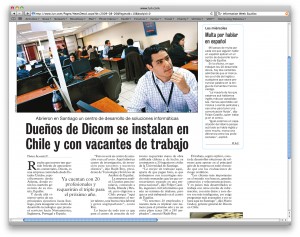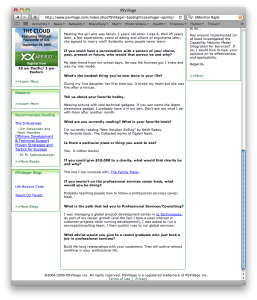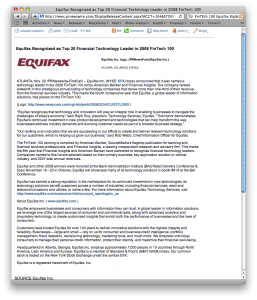What should be the outlook for a top executive?
The other day, I had a pretty engrossing breakfast meeting with a top executive of a large public company. It was engrossing because we started debating – what turned out to be a really interesting – topic. I would love to hear your views on this.
The central question was – What should be the perspective that a top executive in a company should have? That he/she is going to be in the company for a long time? Or that he/she is going to be around for some stipulated period of time (say 5-6 years)?
As we debated, we found a lot of pros and cons on both sides. Presumably, the executive has shown somewhere in the resume that he/she has held at least one job for a pretty long time (8-12 years, say). So, that, at least proves that he/she is not a job hopper or that he/she bailed out everytime the wind blew unfavorably.
After that what?
If the executive joins the company thinking “I will be here for 5-6 years. I need to bring in the maximum effect I possibly can in that time”, the advantage is that
(*) the executive will have a certain level of impatience that is required to continuously push the organization
(*) will have little sense of job protection and is therefore probably not going to be too shy of picking battles
(*) just like a doctor’s advise “you will die in 2 years” quickly sets priorities in one’s life, a sense of “end date” will push the executive to focus on the right priorities
On the other hand,
(*) the executive might come across as being “not loyal” to the company or the cause
Let’s take another executive who joins the company with the assumption he/she will be there for the long haul (or even retire from the company). Chances are that the executive
(*) will be more patient about bringing some larger changes which inherently take a long time (especially if they require culture change in the company)
(*) will be valued as loyal to the cause of the company and
(*) inherently will be interested in learning different aspects of the company (with the assumption that he/she will see a career path thru various different positions in the company)
On the flip side,
(*) a sense of job preservation may drive the executive to acquiesce/avoid uncomfortable decisions/situations
The truth is most executives overestimate their ability to drive what their “end date” will be (more often than not , I have seen companies drive this calendar for them). Still, it would be interesting to understand from the company and the individual’s point of view what would be the right strategy under what circumstances.
Most importantly, the question is what perspective should they have? In reality, they may land up staying longer or shorter depending upon many other variables.
In an interesting twist to the debate, we also wondered, if we were the CEO of the company, which kind of executives would we hire? For what kind of positions?
Thoughts?



